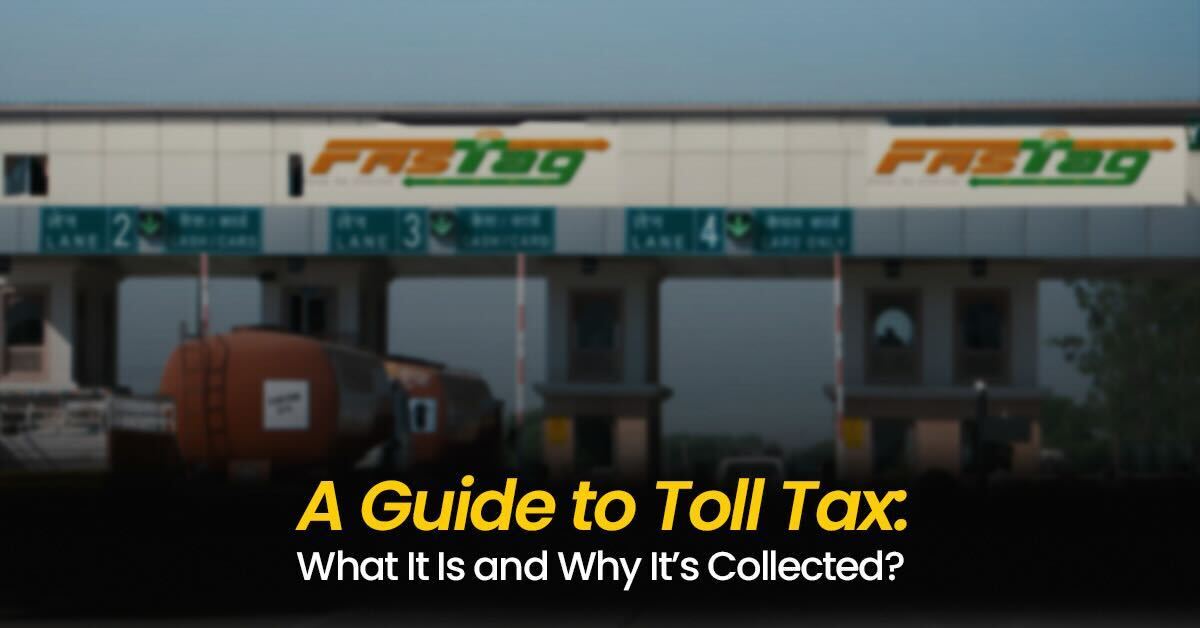

India's infrastructural boom has much to do with its huge network of national highways, expressways, and city roads. To pay for these infrastructural developments, the Indian government has brought into existence a scientific means of recovering the cost — toll tax.
Whether you are a seasoned traveler or an infrequent road tripper, you must have paid a toll at every toll checkpoint. But just what is this toll tax, and why does it have to be a must-have for India?
Toll tax is a type of fee collected by the state or licensed private contractors from automobiles utilizing particular public roads, bridges, or tunnels. The toll is paid at specific toll booths or plazas and is intended to pay for the investment and maintenance costs of these structures.
In India, the toll system is regulated by the National Highways Fee (Determination of Rates and Collection) Rules, 2008, amended from time to time. The National Highways Authority of India (NHAI) and other local authorities are charged with collecting toll either through FASTag or manual booths.
Toll tax is a regulated system as per national guidelines. Some of the distinguishing features that characterize the toll tax system in India are as follows:
Toll tax is levied only when a vehicle occupies a tolled facility such as a highway or bridge, thus representing a direct user-pay mechanism.
India has implemented FASTag for smooth, contactless toll payment. It saves time, fuel, and enhances efficiency at toll plazas.
The toll charges are fixed uniformly according to vehicle category, road type, and length. These are updated from time to time by the authorities.
Several toll roads are constructed and maintained under PPP schemes. The private operator charges tolls until the cost of the project is recovered.
If a return trip is taken within 24 hours on the same toll road, users usually pay a lower fee for the return trip.
Emergency vehicles such as ambulances, fire brigades, and VIP convoys are exempted from paying toll tax.
The idea of collecting tolls isn't new. It has existed for centuries all over the globe, including in India. In the contemporary world, it's an important revenue source for building expressways, bypass roads, and bridges without straining the public exchequer. With the implementation of toll systems, the government sees to it that road users contribute directly to the facilities they use.
Toll fees in India have a certain validity condition as per the Ministry of Road Transport and Highways. These points are the most important:
If the vehicle returns to the same toll plaza in India within a period of 24 hours, it is eligible to avail concessional return toll fee, which is usually around 1.5 times the single journey fare.
For commuters who are residents, there are monthly passes available for unlimited use within a specified radius (20 km) of a toll booth.
The time-based rule is tracked by timestamps on toll tickets or by electronic logs through FASTag.
This system aims to provide cost advantages for repeat or frequent travelers and enhance toll tax fairness of collection.
The amount of toll tax is not arbitrary. It is determined based on the following factors:
Vehicle Type: Heavy commercial vehicles pay higher than light motor vehicles.
Road Type: Rates are higher on expressways or bridges than on national highways.
Distance Traveled: Longer sections generally cost more in toll.
Toll Infrastructure: The toll tax also depends on whether the toll road has expensive infrastructure such as tunnels or flyovers.
The rates are informed by the NHAI and are revised annually based on inflation and changes in operational costs.
Toll tax is generally applicable on the following categories of roads:
National Highways
Expressways
Bridges and Tunnels
State Toll Roads (in some states)
Urban Toll Roads (within city limits, though rare)
Certain types of vehicles and people are exempted from toll tax payment according to Indian regulations:
Ambulances, fire engines, and government service vehicles
Military and police vehicles on official duty
VIP vehicles with proper credentials
Local residents up to 20 km (monthly passes)
These exemptions are provided under Rule 11 of the National Highways Fee Rules and are meant to give priority to emergency and essential services.
Though toll tax is mandatory on toll roads, these are a couple of legal means to minimize your toll costs:
Opt for non-toll roads (as long, they are charge-free).
Opt for a return trip option within 24 hours.
Take advantage of monthly passes if you commute frequently.
Choose government-sponsored toll-free days (typically occurring on national celebrations or emergencies).
Toll tax in India takes on significance in building and sustaining our transport infrastructure. It offers a viable business model, wherein road users pay proportionally towards highway construction and ancillary facilities. While efficiency and over-charging are issues, constantly changing technologies like FASTag and the next-generation satellite tolling system will render toll collection more transparent and commuter-friendly. Understanding how toll tax works empowers citizens to navigate the system effectively while also contributing to the country’s growth.